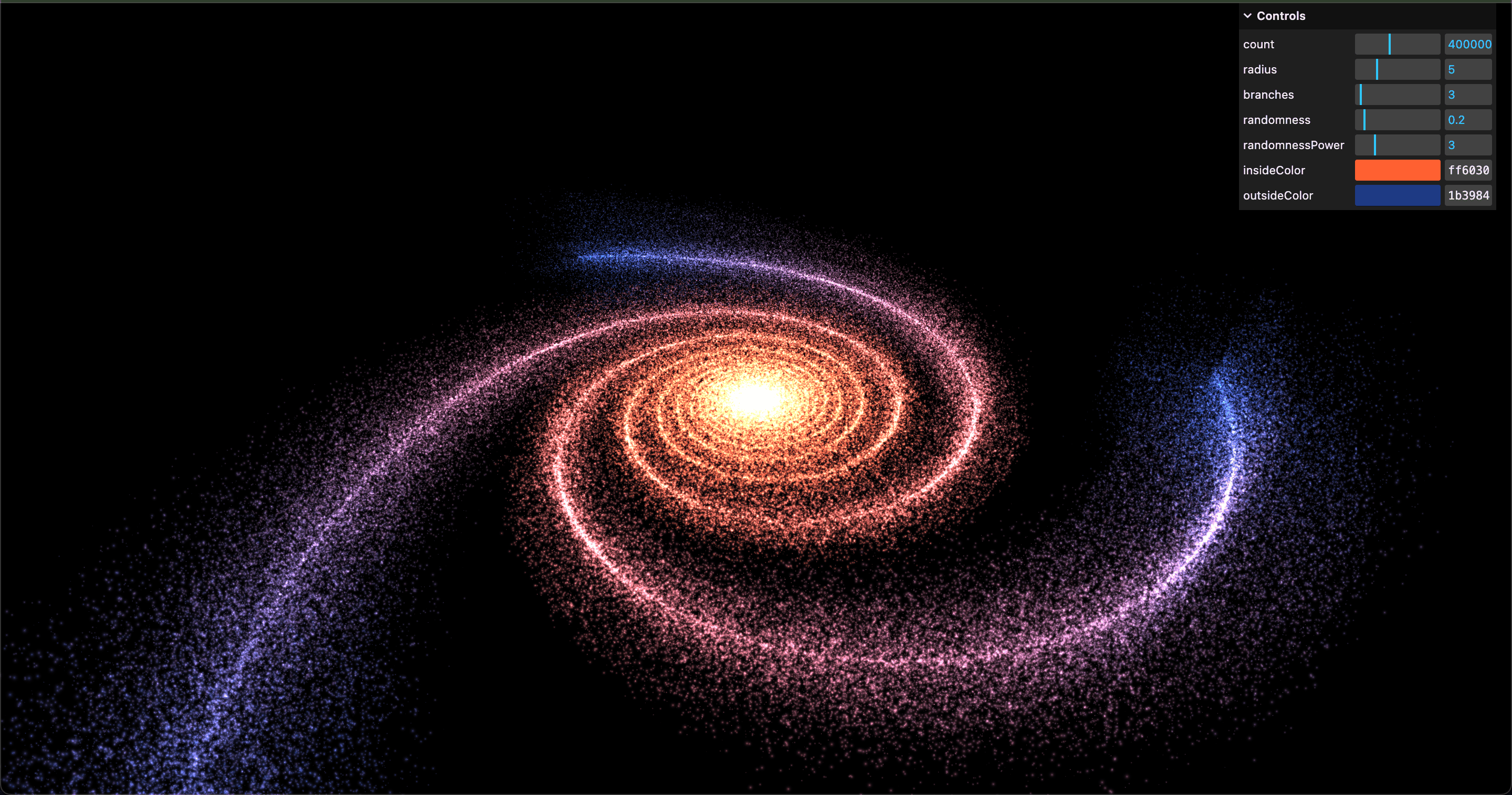
The Galactic Fragment project was my introduction to large-scale procedural particle systems and custom geometry generation in WebGL. My challenge was to simulate a dynamic galaxy using only particles, manipulating thousands of vertices to form spiraling arms, random star scatter, and a realistic depth of field. I built a fully customizable galaxy generator with live tweakable parameters using lil-gui—adjusting attributes such as star count, size, spin, branch curvature, randomness intensity, and inner/outer color gradients.
The project taught me how to balance GPU performance with visual complexity by optimizing particle attributes, material blending modes, and vertex coloring. Each particle’s position was calculated based on polar coordinates and procedural noise, while their colors transitioned smoothly from warm galactic cores to cool outer rims. This not only strengthened my understanding of math-driven geometry but also opened my creative potential for immersive generative visuals. It marked a breakthrough moment where creative coding, performance awareness, and visual storytelling merged on the web.





Members begin by registering through a custom-designed Divi form, which is captured by MemberPress. Each submission is held in review, pending admin approval via the New User Approve plugin.